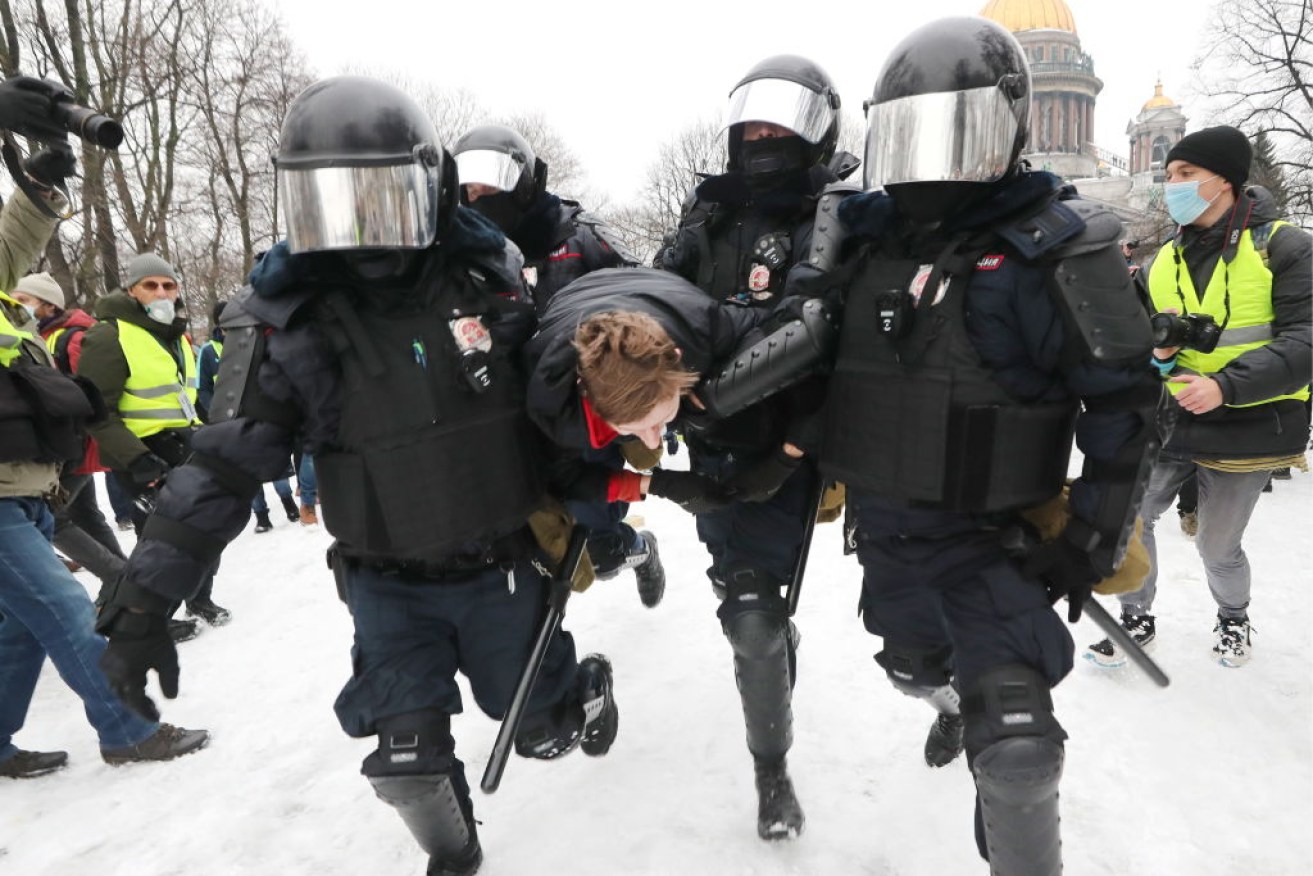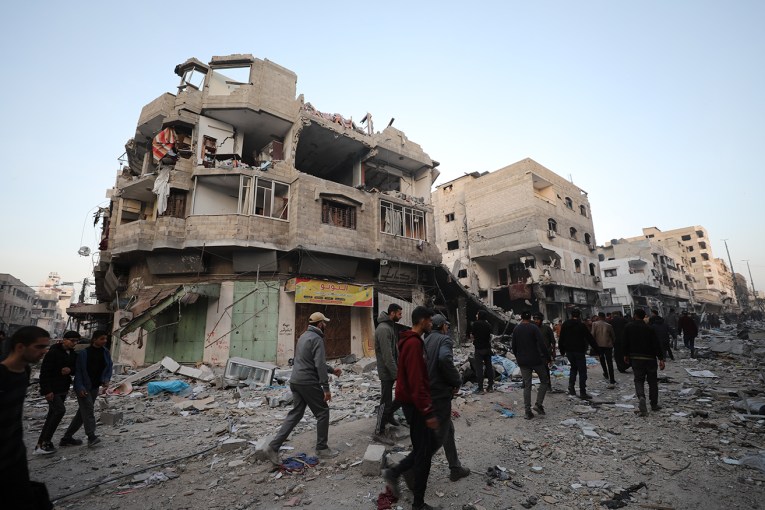Putin’s police arrest thousands of anti-corruption demonstrators

Riot police officers detain a rally participant in St Petersberg. Photo: Getty
Russian police have arrested more than 2600 people in nationwide protests demanding the release of opposition leader Alexei Navalny, the Kremlin’s most prominent foe, according to a group that counts political detentions.
The protests on Saturday in scores of cities where temperatures were as low as minus 50C highlighted how Mr Navalny has built influence far beyond the political and cultural centres of Moscow and St. Petersburg.
In Moscow, an estimated 15,000 demonstrators gathered in and around Pushkin Square in the city centre, where clashes with police broke out and demonstrators were roughly dragged off by helmeted riot officers to police buses and detention trucks. Some were beaten with batons.
Mr Navalny’s wife, Yulia, was among those arrested.

Riot police react to demonstrations in Moscow. Photo: Getty
Police eventually pushed demonstrators out of the square. Thousands then regrouped along a wide boulevard about a kilometre away, many of them throwing snowballs at the police before dispersing.
Some later went to protest near the jail where Mr Navalny is held. Police made an undetermined number of arrests there.
The protests stretched across Russia’s vast territory, from the island city of Yuzhno-Sakhalinsk, north of Japan, and the eastern Siberian city of Yakutsk to Russia’s more populous European cities. Mr Navalny and his anti-corruption campaign have built an extensive network of support despite official government repression and being routinely ignored by state media.
“The situation is getting worse and worse, it’s total lawlessness,” said Andrei Gorkyov, a protester in Moscow. “And if we stay silent, it will go on forever.”

A supporter of Alexei Navalny in Moscow. Photo: Getty
The OVD-Info group, which monitors political arrests, said at least 1045 people were detained in Moscow and more than 375 at another large demonstration in St. Petersburg.
Overall, it said 2662 people had been arrested in some 90 cities, revising the count downward from its earlier report of 3445.
Mr Navalny was arrested on January 17 when he returned to Moscow from Germany, where he had spent five months recovering from a severe nerve-agent poisoning that he blames on the Kremlin and which Russian authorities deny.
Authorities say his stay in Germany violated terms of a suspended sentence in a 2014 criminal conviction, while Mr Navalny says the conviction was for made-up charges.
The 44-year-old activist is well known nationally for his reports on the corruption that has flourished under President Vladimir Putin’s government.
His wide support puts the Kremlin in a strategic bind – officials are apparently unwilling to back down by letting him go free, but keeping him in custody risks more protests and criticism from the West.

People come out in support of Russian opposition activist Alexei Navalny. Photo: Getty
In a statement, the US State Department condemned “the use of harsh tactics against protesters and journalists this weekend in cities throughout Russia” and called on Russian authorities to immediately release Mr Navalny and all those detained at protests.

A gaunt and haggard Alexei Navalny after the attempt to poison him. Photo: Twitter
Mr Navalny faces a court hearing in early February to determine whether his sentence in the criminal case for fraud and money-laundering – which Mr Navalny says was politically motivated – is converted to three-and-a-half years behind bars.
Mr Navalny has been a thorn in the Kremlin’s side for a decade, unusually durable in an opposition movement often demoralised by repression.
He has been jailed repeatedly in connection with protests and twice was convicted of financial misdeeds in cases that he said were politically motivated.
He suffered significant eye damage when an assailant threw disinfectant into his face.
He was taken from jail to a hospital in 2019 with an illness that authorities said was an allergic reaction but which many suspected was a poisoning.
-AAP








